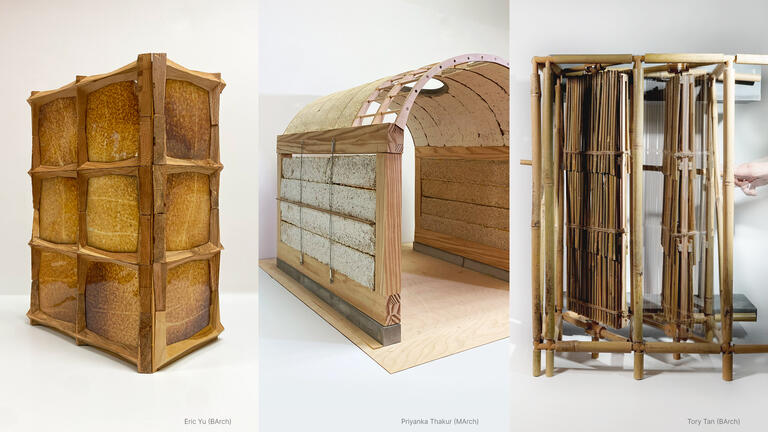New Pedagogies: Material Regeneration: Prototyping Circular Materiality
The current energy crisis and climate change have impelled architects to challenge many standing assumptions in material culture and rethink the relationship between materials, the environment, construction methods, and labor. To address the urgent need for climate protection, architects should scrutinize the enduring material system, and practices and seek simple, adaptive, and constructive solutions that enable ongoing change.

Projects from Material Regeneration Seminar (2023)
The current energy crisis and climate change have impelled architects to challenge many standing assumptions in material culture and rethink the relationship between materials, the environment, construction methods, and labor. To address the urgent need for climate protection, architects should scrutinize the enduring material system, and practices and seek simple, adaptive, and constructive solutions that enable ongoing change.
The seminar course explores alternative approaches to materiality, focusing on carbon-neutral, regenerative, and waste materials, as well as circular construction techniques such as reusing building components and designing for disassembly. Throughout the semester, students will engage in archival research, case studies, and map material flows to develop a design-research booklet and a physical prototype. This hands-on approach encourages students to create ethical and ecological design criteria while experimenting with innovative construction methods and tectonics.